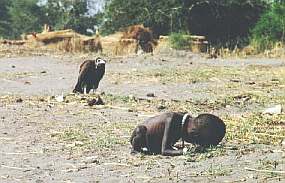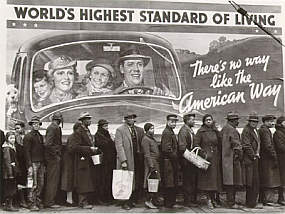I have said these things to you, that in me you may have peace. In the world you will have tribulation. But take heart; I have overcome the world.
—John 16:33
It’s hard to read the newspaper and think any other thoughts than this: people are suffering. I fear that much more suffering is to come.
Last week, I spent most of Wednesday in agony. And agony is a mild word for what it feels like to have a kidney stone. Worse: when you can’t keep the pain meds down because the waves of nausea are forcing up everything. After a prolonged fight, and a thankful passing of the stone, my day of suffering came to an end.
Just when I needed my parents most, they died. My son will never know my Mom and Dad. That’s a different kind of suffering.
Been through a lot of suffering through a series of career starts and restarts. Can’t really explain why. My wife and I have gone through more than our fair share of downsizings. We’re coming up on 12 years of marriage and in that time have endured seven layoffs between the two of us. We always got stellar performance reviews, too. Suffering hurts even worse when it makes no sense.
Last week, when I was hugging the toilet, my side felt ready to explode, I had a good chance to meditate on suffering. Here’s what I learned:
Suffering stinks.
I find it odd that some sectors of Christianity seem to have a love affair with suffering, as if suffering exemplifies the highest form of spiritual bliss.  Some of those folks even go out of their way to suffer. I think that’s nuts.
Some of those folks even go out of their way to suffer. I think that’s nuts.
This is not to say that one can’t learn from suffering. If you’re severely injured in an accident or happen to struggle with a painful, chronic disease, you understand the torment of the cross. How can any of us hurting that profoundly not think of what Jesus endured for us? People in pain can identify with the Savior and experience the fellowship of His sufferings.
In earthly suffering, each of us gets a taste of hell, even if that taste is a small one. Magnify it a millions times. Now who wants to go to that awful place? The Savior comes to save us from that suffering.
Thoughts of heaven permeate the lives of those trapped in earthly suffering. At least they should. People used to content themselves with heaven—note the past tense. Heaven seems remote to people today, even Christians.
Still, the thing about suffering is that its lessons are learned quickly. It’s like the little kid who sticks his hand in the fire. That lesson is well learned once. The point of experiencing sufferings repeatedly or for years and decades gets lost in the end. We know the lesson. Can we please do without more suffering?
I know that when I was twisting in agony, all the spiritualizing about suffering went out the window. I knew the lessons already. More suffering didn’t help me know them better. It didn’t make me any more holy or more Christ-like. Suffering stinks.
What makes the obsession some Christians have with suffering even more odd to me is that suffering is an aberrant condition. God didn’t build suffering into Creation. There’s no suffering in heaven, either. Suffering is the result of sin. Christ became incarnate in part to end suffering. He came into a suffering world and alleviated suffering. Seems to me He’s no fan of suffering.
J. Hudson Taylor, the great missionary to Asia, went to the Far East to bring the Gospel to the lost people there. Today’s blazing Chinese Church, white-hot with revival as it is, owes much of its origin to Hudson Taylor.
But Hudson Taylor buried his family in China and came back to England a different man. Friends who knew him saw the change. A sadness permeated his life afterward.
In some ways, few of us Americans really know anything about suffering, at least suffering for the sake of the Gospel. To me, suffering for the Gospel is the only suffering that makes sense.
However, some better Christians than yours truly don’t see a distinction between suffering from a kidney stone and suffering for the Gospel. I wonder sometimes if they’re overspiritualizing things. If we’re being beaten with a tire iron, it seems to me a great difference if the person initiating the beating is doing so because we’re trying to share the Gospel with him as opposed to his reacting negatively to our complaint about the lousy job he did balancing our tires. A big difference exists between having our heart stop beating because some jungle native drove a spear through it because he didn’t like this Jesus we were talking about and us going into cardiac arrest due to a lifetime of scarfing down buckets of fried chicken.
But that’s just me. Perhaps I’m just not deep enough.

 During that time, I got a sinus infection and the doctor strongly recommended I get a series of X-rays taken to judge the severity of the infection. When I found out how much the X-rays would cost, I passed on them.
During that time, I got a sinus infection and the doctor strongly recommended I get a series of X-rays taken to judge the severity of the infection. When I found out how much the X-rays would cost, I passed on them. Monday morning, I was considering Christ’s agony on the cross. The unrelenting pain intensified by His rejection by a world filled with the souls He created. The weight of sin. The blood-stained ground.
Monday morning, I was considering Christ’s agony on the cross. The unrelenting pain intensified by His rejection by a world filled with the souls He created. The weight of sin. The blood-stained ground.